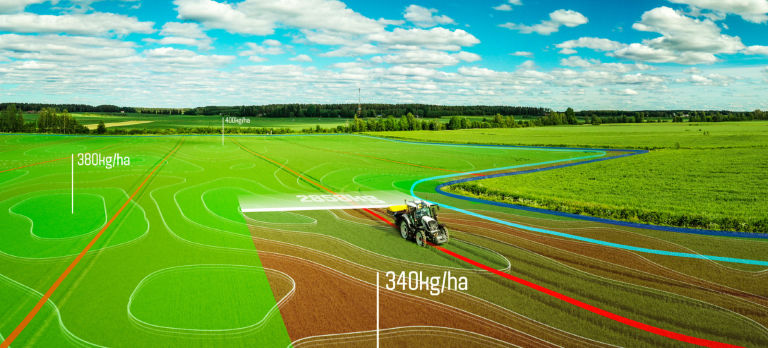In recent years smart farming has evolved considerably and been adopted by many farmers as their practice of choice. There are some, however, who are slow to take advantage of the agronomical and sustainable benefits of smart farming. Recently we invited expert smart farming contractor Christel Thijssen to our Valtra factory and asked him about his thoughts on smart farming adoption.
Christel Thijssen is the proprietor of Loonbedrijf Thijssen, an agricultural contracting business based in the Netherlands that specialises in smart farming. Christel has been using Valtra smart farming technologies such as Valtra Guide, Section Control, and Valtra Variable Rate Control for many years. He has owned various Valtra tractors for over 20 years, most recently a Valtra T175 Direct. In his customer testimonial, he explains how he uses a system of aerial drone crop analysis, soil sampling, and precision application to provide smart farming services to his clients that can save up to 70-80% on fertilizer and plant protection products.
Read: Valtra makes precision farming accessible to everyone
Why some farmers are slow to take up smart farming
Christel has noticed an up turn in customers willing to take advantage of his smart farming services. However, he says some older farmers are still reluctant. “On family farms, the dad is usually wanting to do things the old way, and it’s the son who’s more willing to try precision farming. But we can’t wait until the next generation takes over the family farm. We have to act now”. He attributes this to a mixture of tradition and a lack of knowledge about smart farming. Christel takes a collaborative approach with his clients, explaining the smart farming benefits of reduced input costs and increase plant health and yield. Together, Christel and his clients make a joint decision. However, wider education and information would be beneficial.
Christel notes that an educational approach should be adopted throughout the entire ecosystem, and that there are currently potential conflicts of interest. For example, he shares how some input suppliers are not fully on board. “They say things like ‘don’t believe everything about precision farming’ and advise farmers to stick with the traditional ways. I say we can save 70 to 90 percent of fertiliser and chemical inputs. But that means suppliers selling less inputs.” There are a lot of differing opinions, and farmers must sort through the noise. A consolidated ecosystem approach where the farmer, machine manufacturer, and input supplier are in open and constructive dialogue would help cut through the noise and reach more farmers.
Lack of political support for farmers
Increased political pressures are taking their toll on farmers, their livelihoods, and their health. Christel believes that smart farming has a large role to play in helping to reduce inputs while optimising yields, but feels farmers are being asked for too much. He explains his thoughts in agricultural terms, “You can’t just keep applying more fertilizer and expect more growth. At some point you need to let the soil rest. Precision application gets the right amount of fertilizer to the right spot, when needed. You can think in the same way for a farmer or contractor. You can’t just keep taking another energy drink and keep working. You need to work smarter and take a rest so you’re able to work the next day.” Smart farming technology has the potential to reduce driver stress and increase efficiencies. However, as well as financial investment to purchase new smart equipment, the farmer needs to have the time to learn new techniques and principles. With such a heavy burden, this additional time is not easy to find.
Healthy food, healthy environment, healthy people… and healthy farmers too!
Christel also recognises the need for political support for locally grown produce when competing in an international market. “The food in Holland and Europe is good. But the farmer needs support to stay viable and keep farming. If the farmer is just farming sustainably but not profitably, he will not stay farming for long. We need to be growing healthy food for a healthy environment and healthy people… But we farmers and contractors want to be healthy too.” This is a sentiment that was strongly supported by partners from the sustainable food production ecosystem at the Valtra Sustainability Days event held in 2023.
Read the full story ‘No green if red–Sustainability investments by farms must be profitable’.
Smart farming future
Christel feels that the current smart farming technologies offered by Valtra are well suited for his needs as a smart farming contractor. He feels that there needs to be education for smart farming to be more widely adopted. A collaborative approach working in dialogue as Christel Thijssen does with his own clients will achieve the best results.

Valtra smart farming
Check out our technology pages to read more about how Valtra's smart farming technologies save inputs, lower fuel consumption, and reduce driver fatigue.



